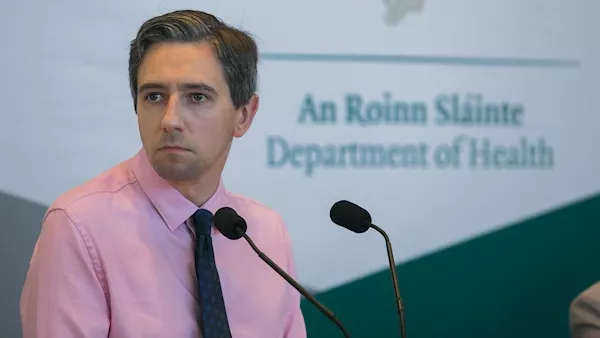A review of 1,034 women's CervicalCheck slides has found that in around 30% of cases, it recorded a different result to the original finding.
For 159 women, including 12 who have died, it means there were missed opportunities to prevent or diagnose their cancer earlier.
The UK Royal College of Obstetricians and Gynaecologists' report disagrees with the smear test results for 308 women with cancer. The panel notes that these findings are in line with those seen in the English screening programme.
It was ordered by the Government in May last year, after a series of scandals affecting CervicalCheck.
The review analysed 1,659 slides from 1,038 women or their next of kin, 1,034 had invasive cancer and four had “high grade abnormal changes”.
In total RCOG disagreed with CervicalCheck results in a third of cases they analysed – 308 out of the 1,034 women with cancer.
The panel identified missed opportunities to prevent or diagnose cancer in 15% of the women.
Lead assessor, Professor Henry Kitchener, on outlining some of the clinical failures, said: "There were 106 cases where we felt (concerned) a failure to prevent the cancer...Many of those failures to prevent applied to very early stage disease.
"In one third of the cases (53 cases), there was a failure to prevent or to diagnose (cancer) at an earlier stage. A minority of the women had advanced stage (cancer) - clearly the consequences for these women were not inconsiderable."
In the Dáil, Taoiseach Leo Varadkar admitted he did not handle the CervicalCheck controversy as well as he could have initially.
"I for one, looking back on it , did not handle it in the way perhaps I should have. I made some mistakes," he said. "I think the Government and Opposition did too. As Dr Scally pointed out in his report, the media did too.
"I hope on this occasion we'll all handle it a little bit better than we did two years ago."

Minister for Health Simon Harris
As well as providing this report to Health Minister Simon Harris, the panel that compiled the report was tasked with providing individual written reports on each case to the HSE's CervicalCheck screening programme.
At the launch of the report today, Minister Harris said: “The report finds the CervicalCheck programme is working effectively and crucially that women can have confidence in the programme.
“The CervicalCheck Programme has faced a difficult and uncertain period over the past eighteen months. The findings and conclusions contained in this Review should provide reassurance and assist in restoring confidence in our programme and address its importance and quality, as well as the limitations of all screening programmes.
“If we are to achieve our goal of making cervical cancer a rare disease in this country, it is vital that women continue to attend for screening."
He said he has asked the HSE to consider the CervicalCheck report's 10 recommendations in the design and implementation of future systems of audit within our screening programmes.
Recommendations from the RCOG review include:
- The policy of reviewing cytology slides should be viewed as a reliable and effective method of audit, the review did not find evidence of bias.
- Large-scale reviews in future should require slides to be transported in a way that can be tracked.
- Efforts should continue to inform women of the limitations of cervical screening however reinforce the message that the screening programme is reducing incidence and deaths.
- Tighter scheduling between colposcopy management.
- Creation of a dedicated database of cancer screening histories in cases where cancer occurs.
Of the 159 cases where the RCOG panel identified missed opportunities to diagnose or prevent cancer, 12 women have died.
It is beyond RCOG’s terms of reference to break down by region where the women came from in those 159 cases.
The panel admitted that in three cases of the entire 1,038, women received two different letters, due to an administration mix-up with a lab in one case, and language needed to be modified in another.
A total of 567 women did not consent to be included in the review, and the panel do not believe that those women would have had different findings or brought a different set of results.
The review found the co-operation from labs “went well”, despite delays, in which the labs had to access slides and “image” them, which turned out to be time consuming.






